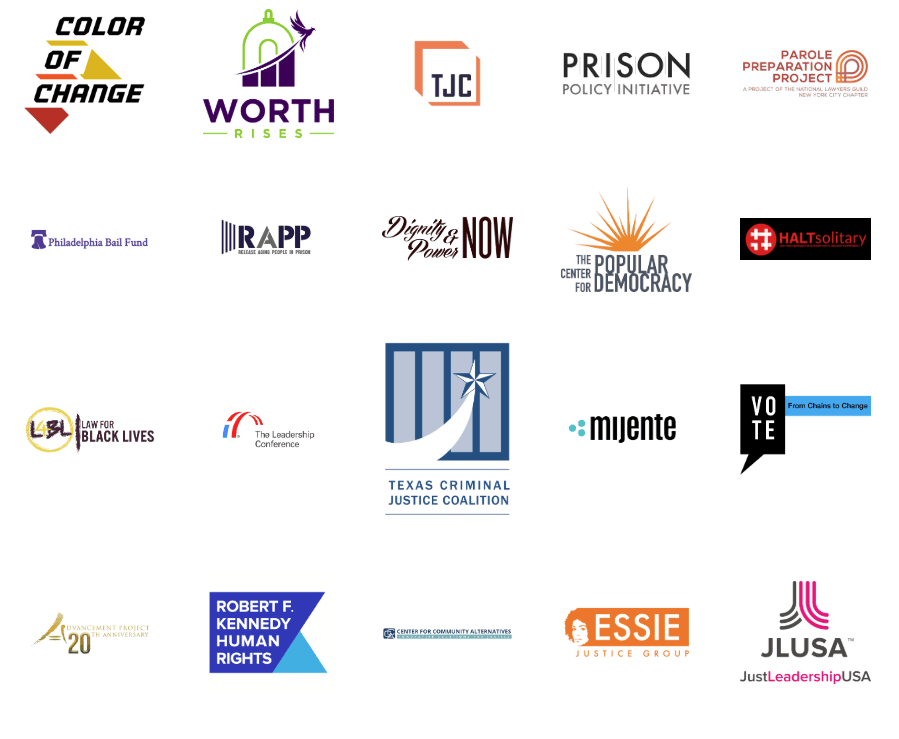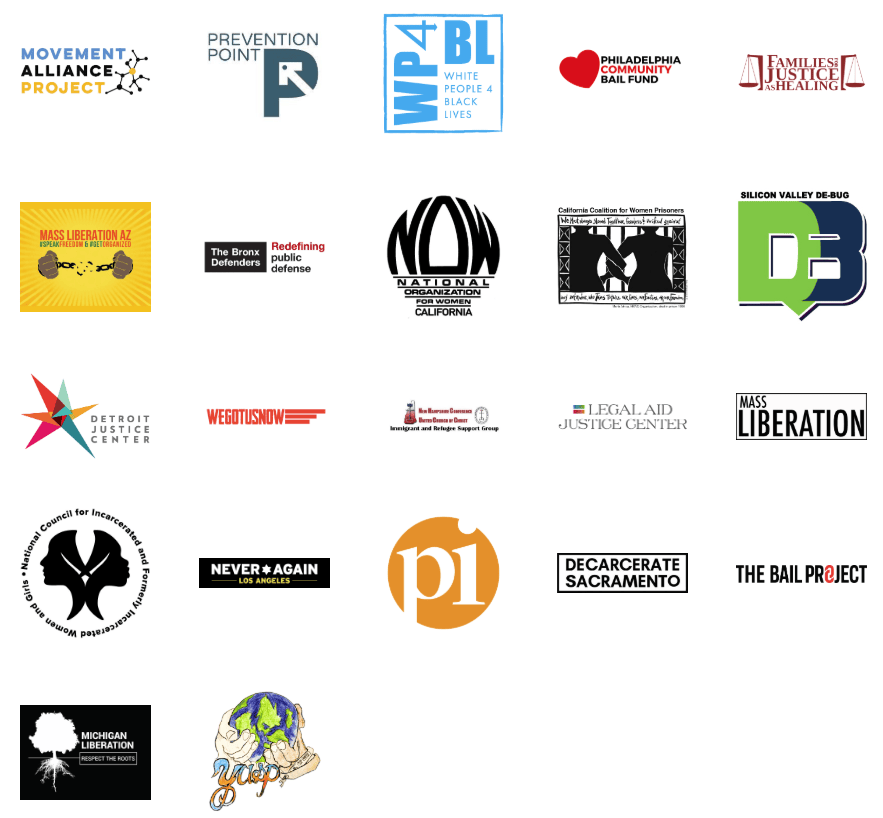
Sign the Color of Change petition HERE now!
It is not a matter of if but when the coronavirus will enter prisons and jails, according to health experts. The consequences of that eventuality will be devastating.
COVID-19 outbreaks in prisons and jails will spread “like wildfire” due to close quarters, unsanitary conditions, a population that is more vulnerable to COVID-19, and the large number of people that cycle through the criminal justice system. The risk extends far beyond those who are incarcerated.
COVID-19 outbreaks in jails and prisons threaten the larger public, as hundreds of thousands of individuals churn through jails on a daily basis and correctional, medical and other staff interact with the incarcerated population and circulate back into communities. With 2.3 million people in the United States in prison or jail on any given day, an outbreak in these facilities poses a threat to the entire country.
If federal, state and local officials take swift action, they can not only prevent the spread of COVID-19 inside prisons, jails and detention centers and ensure the safety and wellness of our loved ones in cages, but they can also have an enormous impact on the wellness of the rest of the country.
Demands for the Federal Bureau of Prisons, Governors, State Departments of Corrections and Public Safety, Local Jails and Detention Centers
Prevent the spread of disease.
Federal, state, and local officials should take the following actions to prevent and contain the spread of COVID-19 both within state prisons, local jails and detention centers, and in the communities in which they are located:
- Reduce jail, prison and detention center populations before an outbreak occurs. Releasing people from incarceration is the best and safest way to prevent the spread of disease and reduce the threat to the most vulnerable incarcerated people:
- Use all available powers, including but not limited to executive clemency, commutations, furlough, compassionate release, parole and release on recognizance, to release people from jails, prisons and detention centers. And where possible, create new emergency mechanisms to reduce incarcerated populations.
- Anyone should be considered for release. But officials must immediately release all who are particularly vulnerable to illness (older people, those with chronic illnesses, pregnant people, those with asthma, cancer, heart disease, lung disease and diabetes etc).
- Assist people released from prisons with transitional plans that ensure they receive adequate medical care.
- Reduce prison, jail and detention center populations to ensure that capacity is such that cells are not shared, there are sufficient medical beds, and enough prison staff to ensure safety for staff, those incarcerated and visitors.
- Instruct parole boards to expedite release of those who have been granted parole and expedite new parole hearings.
- Stop the cycle of people in and out of jails and detention centers by drastically reducing admissions and holds.
- Stop all new detentions of anyone who does not pose risk of serious injury to a reasonably identifiable person. This includes but is not limited to people being held for unpaid money bail or immigration bonds, immigration detainer holds, or detainer holds for technical violations of parole or probation – regardless of the underlying offense.
- Do not increase community supervision or ankle shackling as a substitution for in-person custody.
- Remove the threat of incarceration for people who are already under community supervision to allow people to travel and access medical care, stay isolated when necessary, and take care of themselves and their families:
- Eliminate requirements for in-person check-ins with probation, pretrial services, parole and/or ICE to prevent the spread of disease.
- Eliminate restrictions on movement for people under the surveillance of ankle shackles to allow access to medical care, family and loved ones who may need care or support.
- Release all people currently detained in ICE custody.
- Release to the public the existing plan and procedures in place to address COVID-19 within state and federal prisons, jails and detention centers.
- Provide soap, CDC-recommended hand sanitizer, medical care, comprehensive sanitation and cleaning of facilities and other safety measures as recommended by the CDC for those who remain incarcerated free of charge. These CDC recommendations include but are not limited to requiring correctional facilities to follow CDC guidelines for workplaces to ensure that prison staff and visitors stay home if they are sick and follow proper coughing, sneezing and handwashing etiquette and routine environmental cleaning to prevent the spread of infectious diseases, including COVID-19.
- Medical testing, preventative measures and treatment should be available at no cost to those who remain incarcerated. Eliminate all co-pays for incarcerated healthcare.
Protect, don’t exploit, incarcerated people.
In this time of crisis, officials are looking to incarcerated workers to provide valuable labor but without doing anything to keep them safe and well. This is unconscionable. Federal, state and local officials cannot continue nor exacerbate the modern-day slavery of forced and grossly underpaid prison labor:
- Eliminate requirements for incarcerated workers to perform tasks (waste management, handling corpses, digging graves, etc) that put them at risk of contracting the disease and allow them to opt out.
- Provide all workers with appropriate protective gear (i.e. disposable gloves, coveralls and masks).
- Institute a minimum wage for incarcerated people who are working.
If federal, state and local officials take swift action, they can not only prevent the spread of COVID-19 inside prisons, jails and detention centers and ensure the safety and wellness of our loved ones in cages, but they can also have an enormous impact on the wellness of the rest of the country.
When an outbreak happens inside prison, jail or detention center walls, it is imperative that federal, state and local officials uphold the dignity and humanity of the people who remain confined.
- Release all incarcerated people who test positive to an external healthcare facility to receive care. Anyone exposed and in need of quarantine should be moved to hospitals and medical facilities, not quarantined within unsanitary and unsafe jails, prisons or detention centers.
- Do not use extended solitary confinement as a substitution for providing people in prison who are exposed to COVID-19 with proper medical care.
- Provide designated bathrooms for use by people who are symptomatic. Ensure that the bathrooms are sanitized daily and persons who are incarcerated and symptomatic are treated with dignity and respect, not stigmatized.
- Provide regular daily public updates on the number of cases, any fatalities and names of those who are ill so that family and friends of those in custody will have accurate, up to date information about the health of their loved ones behind bars
- At no point should any facility be on lockdown. Ensure families and lawyers have access to regular communications channels with incarcerated loved ones or clients, including but not limited to free phone calls (including confidential phone calls and videoconferencing with attorneys), email, video conferencing and postage mail.
- Maintain access to counsel and preserve family visitation rights as long as possible and with precautions (such as glass wall barriers) that can address concerns around the introduction and spread of the virus in correctional facilities;
- Ensure that containment measures do not result in the denial of due process (for instance, not postponing court appearances in violation of speedy trial guarantees or creating barriers that inhibit access to counsel).
Criminalization of Black and Brown communities is not a real public health solution.
Within our communities, Black and Brown people already face increased criminalization. State and local officials must not abuse public health orders to further criminalize our communities as they work hard to survive this pandemic.
- In the event of emergency lockdown and quarantine, there should not be a criminal punishment for breaching emergency quarantine protocols, failing to disclose COVID-19 symptoms, nor for potentially exposing others to the virus.
- There should not be any criminal penalties for acts of survival like stealing supplies or resources.
- No ICE or any law enforcement officers should be granted warrants to target community hubs where resources are being distributed to respond to the COVID-19 outbreak.
This platform is sponsored by







